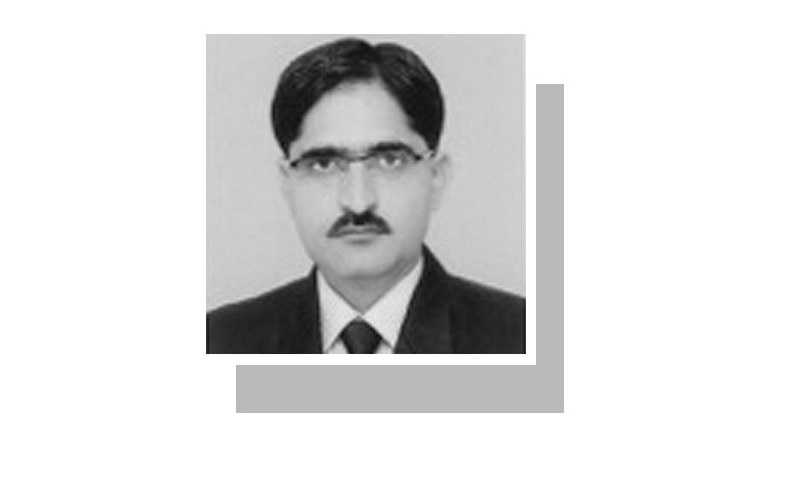
IT has been pointed out that there are four universal principles that govern the concept of the rule of law. First, the governments and those representing it as well as individuals and private entities are accountable under the law. Second, the laws are clear, “stable and just, are applied evenly, and protect fundamental rights, including the security of persons and property”. Third, laws are enacted and enforced in a manner that is “accessible, fair and efficient, and timely”. And last, justice is delivered by unbiased representatives known to be ethical.
The World Justice Project (WJP) Rule of Law Index, 2016, while using the above definition, ranks Pakistan 106 out of 113 countries. This ranking is made against eight factors: “constraints on government powers, absence of corruption, open government, fundamental rights, order and security, regulatory enforcement, civil justice, and criminal justice”. I invite the attention of justice-sector stakeholders to three important themes: fundamental rights, civil justice, and criminal justice.
Fundamental rights are basic to human existence and individual development on the one hand, and on the other, they are essential for the growth of a society based on democratic and equitable principles. These rights are provided in Chapter 1 of the 1973 Constitution.
The WJP measures how far there is equal protection of law for citizens and the absence of discrimination. It reviews the extent to which the right to life and security is effectively guaranteed, due process of law, and protection of the accused’s rights. It assesses how far the freedom of opinion and expression is guaranteed, the extent to which freedom of belief and religion is safeguarded, if freedom from arbitrary interference in private affairs is provided and freedom of assembly and association ensured, and how far fundamental labour rights are guaranteed. It confirms the fragile state of fundamental rights. Against this measure, it ranked Pakistan 101 out of 113 countries.
Bar councils should start special campaigns on rule of law.
The delivery of justice in a timely, efficient manner is an integral pillar of the rule of law. Our Constitution promises inexpensive and expeditious justice to the people under Article 37. The WJP measures whether ordinary people can get their disputes resolved peacefully and grievances addressed effectively through our civil justice system.
The delivery of effective civil justice requires that citizens be able to access and afford the justice system, free of discrimination and corruption, and without government influence. Such justice necessitates that court proceedings are concluded within a reasonable time frame, and that decisions are enforced.
The accessibility, impartiality and efficiency of mediation, reconciliation and the arbitration system is another factor in the examination of the performance of the institution of civil justice. The civil justice system is ranked 106 out of 113 countries.
An effective criminal justice system is key for the protection of life and maintenance of peace and order in society. In efficient criminal justice systems, investigation and adjudication of criminal cases take place in a timely, impartial, non-discriminatory manner.
Strong criminal justice systems process investigation and trial of offences without bias and influence, ensuring due process of law for both complainant and accused. The report also evaluates the overall performance of the stakeholders responsible for the delivery of criminal justice ie the police, lawyers, prosecutors, judges, and prison officers. Pakistan’s criminal justice system ranking (81/113) indicates an urgent need for improvement.
The rule of law ensures the protection of fundamental rights and a strong civil and criminal justice system. Where it is weak, people suffer from injustice, poverty, violence, unaccountability, inequality and discrimination. Therefore, promoting it should be a major goal of the bench, bar, government and civil society organisations.
The Pakistan Bar Council and provincial bar councils should start special campaigns and crash courses on the rule of law. Students should be familiarised with the role of institutions through visits to courts and essay competitions. The government and civil society should launch awareness campaigns on the rule of law through social, print and electronic media.
The superior courts are custodians of our fundamental rights and also responsible for promoting the concept of the rule of law. Thus, those who violate fundamental rights and the rule of law must be held accountable before competent, ethical and independent judges.
The regulatory bodies of the judiciary (ie Supreme Judicial Council) need to play an effective role in ensuring the rule of law through an efficient judicial system. At the same time, the government must provide adequate resources to the judiciary for improving the civil and criminal justice system. The executive branch of the government and civil society should support the judiciary in upholding the universal principles mentioned in the beginning.
The writer is a lawyer based in Lahore.
Published in Dawn, November 14th, 2016









































